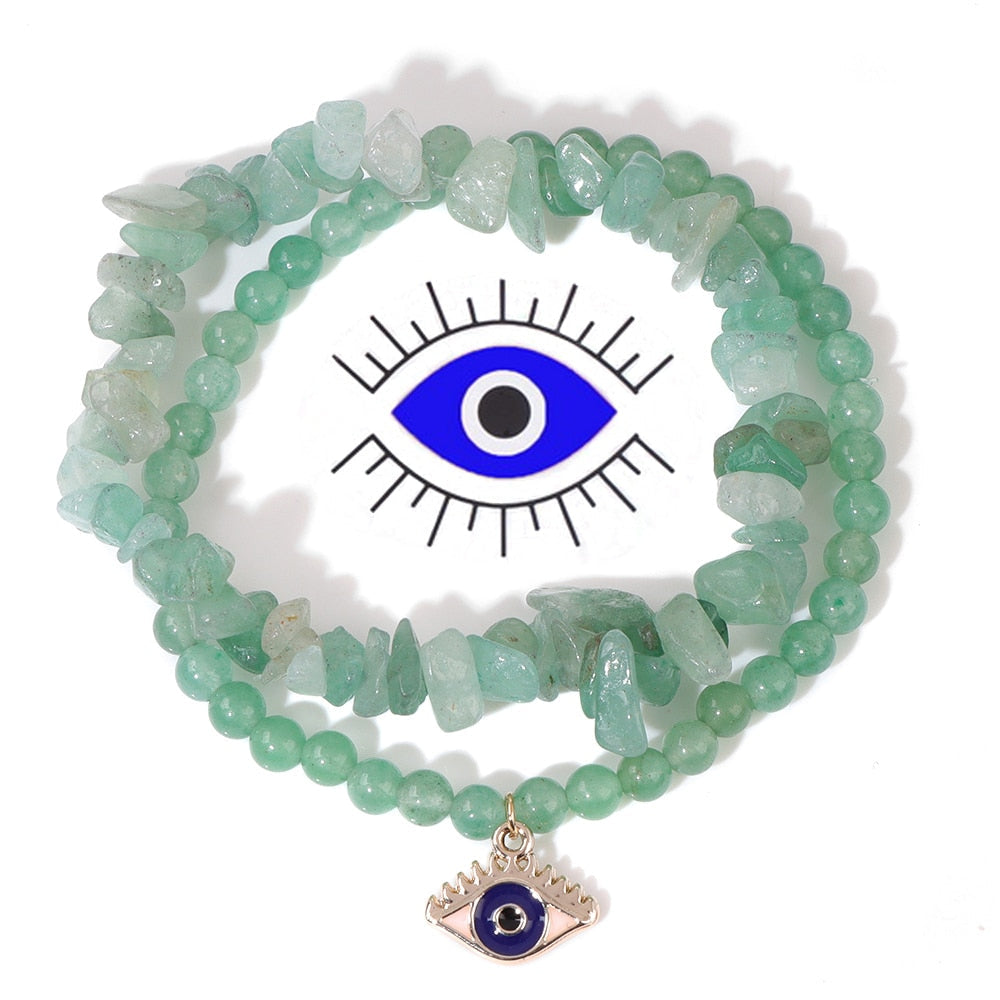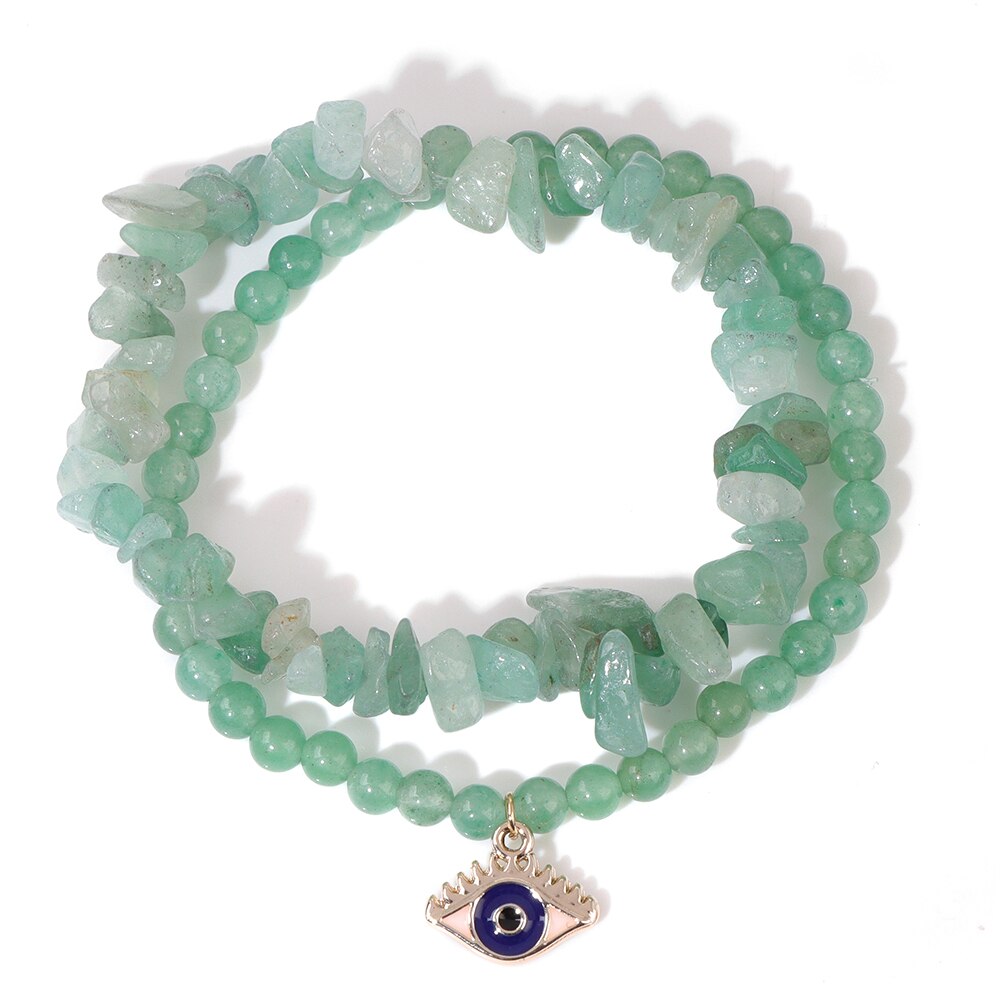Die Sorge vor dem „bösen Blick“ oder „Ayn“ ist in vielen Kulturen und Glaubensrichtungen, einschließlich des Islam, bekannt. Für diejenigen, die spirituellen Schutz suchen, bietet das Rezitieren von Dua (Bittgebeten) tiefen Trost und Schutz. Wenn Sie verstehen möchten, wie diese heiligen Gebete Sie und Ihre Lieben vor unsichtbarem Schaden und Negativität schützen können, führt Sie dieser Leitfaden durch authentische islamische Rezitationen, ihre Bedeutung und zeigt Ihnen, wie Sie sie für Ihr spirituelles Wohlbefinden in Ihren Alltag integrieren können.
Das Konzept des bösen Blicks im Islam verstehen
In der islamischen Tradition bezeichnet der böse Blick (al-'ayn) Schaden, der einer Person, einem Besitz oder sogar einem Tier durch einen Blick zugefügt werden kann, der von Neid oder Bewunderung begleitet ist, ohne dass man um Gottes Segen ruft. Dabei muss es sich nicht unbedingt um böswillige Absichten handeln; manchmal kann sogar ein Blick aufrichtiger Bewunderung, wenn er nicht mit „Masha'Allah“ (Was Gott gewollt hat) oder „Barakallahu fik“ (Möge Allah dich segnen) verbunden ist, unbeabsichtigt zum bösen Blick führen. Der Koran und die Sunna (Lehren und Praktiken des Propheten Mohammed, Friede sei mit ihm) bieten klare Anleitungen dazu, die Realität des bösen Blicks anzuerkennen und durch glaubensbasierte Praktiken Schutz vor dem bösen Blick zu suchen, vor allem durch Dua-Schutz .
Der Glaube an den bösen Blick fördert Demut und das Vertrauen auf Allah (SWT) für alle Segnungen. Er erinnert daran, dankbar zu sein und sich selbst und andere durch die Anrufung göttlicher Segnungen zu schützen. Das Verständnis dieses Konzepts ist der erste Schritt, um Duas gegen den bösen Blick effektiv als Schutzschild zu nutzen.
Die Kraft des Dua zum Schutz vor dem bösen Blick
Dua ist der Grundstein des muslimischen Glaubens und eine direkte Verbindung zu Allah (SWT). Wenn es um Schutz vor dem bösen Blick, Eifersucht und anderen spirituellen Leiden geht, gilt Dua als die wirksamste Waffe. Das Rezitieren eines bestimmten Dua zum Schutz vor dem bösen Blick mit Aufrichtigkeit, Überzeugung und Verständnis kann einen spirituellen Schutzschild um eine Person, ihre Familie und ihren Besitz schaffen.
Zu den Vorteilen des Vertrauens auf Dua gehören:
- Stärkung des Glaubens: Sich in Zeiten der Not an Allah zu wenden, stärkt den Tawhid (die Einheit Gottes).
- Spiritueller Frieden: Das Wissen, dass Sie aktiv nach göttlichem Schutz suchen, bringt Ruhe.
- Der Führung des Propheten folgen: Der Prophet Muhammad (Friede sei mit ihm) lehrte bestimmte Duas zum Schutz und das Befolgen seiner Sunnah ist eine Quelle des Segens.
Wichtige Suren und Verse des Korans zum Schutz
Der Koran selbst ist eine Quelle der Heilung und des Schutzes. Bestimmte Suren (Kapitel) und Ayat (Verse) sind besonders bekannt für ihre Kraft, den bösen Blick und andere Gefahren abzuwehren. Sie werden oft im Rahmen der täglichen spirituellen Routine rezitiert.
Sure Al-Falaq (Der Tagesanbruch) und Sure An-Nas (Die Menschheit) – Die Mu'awwidhatayn
Diese beiden Suren, zusammen bekannt als Al-Mu'awwidhatayn (die beiden Suren der Zuflucht), werden dringend empfohlen, um Schutz zu suchen. Der Prophet Muhammad (Friede sei mit ihm) rezitierte sie häufig zum Schutz vor verschiedenen Übeln, einschließlich dem bösen Blick.
- Sure Al-Falaq (Kapitel 113): Sucht Zuflucht bei Allah vor dem Bösen, das Er geschaffen hat, vor der Dunkelheit, vor denen, die Hexerei praktizieren, und vor den Neidern, wenn sie neidisch sind.
- Sure An-Nas (Kapitel 114): Sucht Zuflucht bei Allah, dem König und Gott der Menschheit, vor dem Bösen des Flüsterers (Satan), der sich zurückzieht.
Ayat al-Kursi (Der Thronvers) – Sure Al-Baqarah 2:255
Ayat al-Kursi gilt als einer der mächtigsten Verse im Koran. Seine Rezitation bietet immensen Schutz. Der Prophet Muhammad (Friede sei mit ihm) erklärte, dass, wer Ayat al-Kursi nach jedem vorgeschriebenen Gebet rezitiert, nichts außer dem Tod vom Eintritt ins Paradies abhalten wird. Es ist auch ein wirksamer Schutz gegen den bösen Blick und andere Schajatin (Teufel). Viele Muslime machen es sich zur Gewohnheit, es regelmäßig zu rezitieren, um sich umfassend zu schützen.
Die Einbeziehung von Ayat al-Kursi in Ihre täglichen Duas gegen den bösen Blick bietet einen umfassenden spirituellen Schutz.

Andere empfohlene Duas aus der Sunnah
Über bestimmte Suren hinaus enthält die Sunna zahlreiche Bittgebete um Schutz. Ein häufiges und umfassendes Dua lautet: „A'udhu bi kalimaat-illaah il-taammaati min sharri maa khalaq“ (Ich suche Zuflucht in den vollkommenen Worten Allahs vor dem Bösen seiner Schöpfung). Es wird empfohlen, dieses Dua morgens und abends dreimal zu rezitieren. Ein weiteres mächtiges Dua gegen den bösen Blick aus Koran und Sunna lautet: „Bismillaahil-lathee laa yadhurru ma'as-mihi shay'un fil-'ardhi walaa fis-samaa'i wa Huwas-Samee'ul-'Aleem“ (Im Namen Allahs, mit dessen Namen nichts auf Erden oder im Himmel Schaden anrichten kann, und Er ist der Allhörende, der Allwissende). Dieses Dua morgens und abends dreimal zu rezitieren, ist ebenfalls eine Schutzmaßnahme.
Wie man Duas für maximale Wirksamkeit rezitiert
Obwohl die Worte des Dua wichtig sind, beeinflussen die Art und Weise der Rezitation und die Absicht des Dua seine Wirksamkeit maßgeblich. Hier sind einige Tipps, wie Sie Ihr Dua gegen den bösen Blick wirkungsvoller machen können:
- Aufrichtigkeit (Ikhlas): Rezitieren Sie Duas ausschließlich um Allahs Willen und mit aufrichtigem Herzen.
- Überzeugung (Yaqeen): Vertraue voll und ganz darauf, dass Allah (SWT) dich beschützen wird.
- Beständigkeit: Machen Sie Dua zu einem regelmäßigen Teil Ihrer täglichen Routine, nicht nur, wenn Sie sich bedrückt fühlen. Morgendliche und abendliche Adhkar (Gedenken) beinhalten oft schützende Duas.
- Die Bedeutung verstehen: Das Wissen um die Bedeutung der Duas, die Sie rezitieren, kann Ihre Verbindung und Aufrichtigkeit vertiefen. Während das Rezitieren des Duas gegen den bösen Blick auf Arabisch bevorzugt wird, verstärkt das Verständnis der Übersetzung seine Wirkung.
- Wudu (Waschung): Es wird empfohlen, sich beim Dua in einem Zustand der Reinheit (Wudu) zu befinden.
- Konzentration und Geistesgegenwart: Versuchen Sie, sich auf die Wörter und ihre Bedeutung zu konzentrieren und Ablenkungen zu vermeiden.
Persönliche Hingabe und das Bittgebet selbst haben eine große Wirkung. Manchen Menschen kann die Verwendung von Gebetsperlen (Tasbih) bei der Konzentration helfen, da sie den Geist auf die Rezitation lenken.

Obwohl spirituelle Praktiken im Vordergrund stehen, finden manche Menschen Trost in symbolischen Gegenständen. Dieses Armband kann Sie daran erinnern, dass Sie sich entschlossen haben, durch Glauben Schutz zu suchen.
Schwarzes Onyx-Armband mit Symbol des bösen Blicks
$29.99 $39.99
Schützen Sie sich vor Negativität mit diesem schwarzen Onyx-Armband mit bösem Blick, das für spirituellen und alltäglichen Schutz entwickelt wurde.
Produkt entdeckenSchützen Sie Ihre Lieben: Duas für Familie und Kinder
Die Sorge um das Wohl der Familie ist natürlich, und der Islam bietet konkrete Anleitungen zum Schutz von Kindern vor dem bösen Blick. Ein Gebet vor dem bösen Blick für Kinder oder Babys ist für muslimische Eltern eine gängige Praxis. Der Prophet Muhammad (Friede sei mit ihm) pflegte, für seine Enkel Al-Hasan und Al-Husayn Schutz zu suchen, indem er rezitierte:
„U'eedhukumaa bikalimaatil-laahit-taammah min kulli shaytaanin wa haammah, wa min kulli 'aynin laammah“
(Ich bitte euch beide mit den vollkommenen Worten Allahs um Schutz vor jedem Teufel und jedem giftigen Reptil und vor jedem bösen Blick.)
Eltern können dieses Dua über ihren Kindern rezitieren, indem sie sanft auf sie pusten. Auch das regelmäßige Rezitieren von Al-Mu'awwidhatayn (Sure Al-Falaq und Surah An-Nas) und Ayat al-Kursi für Kinder ist sehr nützlich. Wenn man Kindern diese Duas beibringt, während sie heranwachsen, vermittelt man ihnen die Wichtigkeit, Allahs Schutz zu suchen.
Wichtige schützende Duas für die Familie:
- Die Mu'awwidhatayn (Sure Al-Falaq und An-Nas)
- Ayat al-Kursi
- Das prophetische Dua für Kinder (siehe oben)
- Allgemeine Schutzbitten, die mit der Absicht rezitiert werden, die Familie zu schützen.

Für diejenigen, die neben ihren Gebeten auch symbolische Gesten schätzen, können traditionelle Gegenstände als sanfte Erinnerung an spirituelle Fürsorge dienen. Diese können die Kernpraxis des Dua gegen den bösen Blick ergänzen.
Ergänzen Sie Ihre spirituelle Praxis
$35.90
$51.90
Tragen Sie dieses rote Schnurarmband mit symbolischen Anhängern für einen traditionellen Schutz vor dem bösen Blick und eine bedeutungsvolle Verbindung. Mehr erfahren ➔
$29.99
$39.99
Genießen Sie die tägliche Harmonie und schützen Sie Ihre Energie mit diesen Kristallarmbändern gegen den bösen Blick, die für eine stilvolle spirituelle Abwehr gefertigt wurden. Mehr erfahren ➔
Die Rolle der Symbole des bösen Blicks im Vergleich zu Duas im Islam verstehen
In verschiedenen Kulturen werden häufig Symbole des bösen Blicks (wie das blaue Augenamulett) zum Schutz verwendet. Im Islam ist das Dua und das Vertrauen auf Allah (SWT) jedoch das wichtigste und am meisten betonte Mittel zum Schutz. Während einige kulturelle Interpretationen Symbole verwenden, ist es für Muslime wichtig zu verstehen, dass wahrer Schutz allein von Allah kommt und durch Gebete und Koranrezitationen erlangt werden kann.
Die wissenschaftlichen Meinungen gehen auseinander, ob Amulette zulässig sind, wenn sie keine Koranverse oder spezifischen Duas enthalten. Einigkeit besteht jedoch darüber, dass man nicht auf das Symbol selbst vertrauen sollte, da dies an Schirk (die Beigesellung Allahs) grenzen kann. Der Fokus sollte stets auf der Kraft des Duas gegen den bösen Blick und dem Vertrauen auf Gottes Willen liegen. Für weitere Einblicke in die islamische Perspektive zu solchen Themen können Quellen wie IslamQA.info mit ausführlichen Diskussionen zur Fiqh (Rechtsprechung) konsultiert werden.
Während das Symbol des bösen Blicks für manche ein kulturelles Element sein mag, bildet das aufrichtige Rezitieren von Duas gegen den bösen Blick den Kern der islamischen spirituellen Verteidigung. Weitere Informationen zu allgemeinen islamischen Prinzipien finden Sie bei Institutionen wie Al-Islam.org .
Fazit: Göttlichen Schutz durch Dua annehmen
Das Rezitieren von Dua gegen den bösen Blick ist ein tiefgreifendes spirituelles Werkzeug für Muslime, die Schutz vor Negativität und Schaden suchen. Indem Sie die Bedeutung dieser Gebete verstehen, regelmäßig wichtige Suren und Bittgebete wie Al-Mu'awwidhatayn und Ayat al-Kursi rezitieren und ein tiefes Vertrauen auf Allah (swt) entwickeln, können Sie einen starken spirituellen Schutz für sich und Ihre Familie aufbauen. Denken Sie daran, dass Aufrichtigkeit, Überzeugung und Regelmäßigkeit der Schlüssel sind, um die volle Kraft dieser heiligen Rezitationen zu entfalten. Möge Allah (swt) uns alle vor jeder Form des Bösen schützen und uns Frieden und Wohlergehen schenken.
Bei Healing Sounds fördern wir einen ganzheitlichen Ansatz für Ihr Wohlbefinden, bei dem spirituelle Praktiken wie Dua durch achtsames Leben ergänzt werden. Unsere ausgewählten Artikel unterstützen Sie auf Ihrem Weg zu Frieden und Schutz und erinnern Sie stets an die göttliche Verbindung, die schützt und erhebt.
Häufig gestellte Fragen zu Evil Eye Dua
Mehrere Duas sind sehr effektiv. Die bekanntesten sind Sure Al-Falaq und Sure An-Nas (Al-Mu'awwidhatayn) sowie Ayat al-Kursi (Koran 2:255). Der Prophet Muhammad (PBUH) lehrte auch spezifische Bittgebete wie „A'udhu bi kalimaat-illaah il-taammaati min sharri maa khalaq“ (Ich suche Zuflucht bei den perfekten Worten Allahs vor dem Bösen dessen, was Er geschaffen hat).
Die oben genannten Duas, insbesondere Suren Al-Falaq, Suren An-Nas und Ayat al-Kursi, werden sowohl zum Schutz vor dem bösen Blick als auch zur Beseitigung seiner Auswirkungen rezitiert. Ruqyah, das Rezitieren von Koranversen und spezifischen Duas über die betroffene Person, ist eine gängige islamische Praxis zur Heilung vom bösen Blick. Beständigkeit und aufrichtiger Glaube an Allahs Macht sind entscheidend.
Für den allgemeinen Schutz vor allen Formen des Bösen, einschließlich des bösen Blicks, Shayateen (Teufel) und anderen Gefahren, sind Al-Mu'awwidhatayn (Sure Al-Falaq und Sure An-Nas) und Ayat al-Kursi von größter Bedeutung. Das Dua „Bismillaahil-lathee laa yadhurru ma'as-mihi shay'un fil-'ardhi walaa fis-samaa'i wa Huwas-Samee'ul-'Aleem" ist auch ein umfassendes Schutzdua.
Das Symbol des bösen Blicks (oft ein blaues, augenförmiges Amulett) ist ein kultureller Talisman, der in vielen Gesellschaften zu finden ist und von manchen als Schutz vor dem bösen Blick angesehen wird. Im Islam kommt wahrer Schutz von Allah (SWT) durch Dua und Koranrezitation , nicht von Symbolen. Sich auf Symbole zu verlassen, kann aus islamisch-theologischer Sicht problematisch sein, wenn es zu Schirk (Zuschreibung von Macht an andere als Allah) führt. Der primäre islamische Schutz ist spirituell, durch Glauben und Gebet (Dua).
Sure Al-Falaq sucht ausdrücklich Schutz vor dem „Bösen eines Neiders, wenn er neidisch ist“. Daher gilt sie als eines der direktesten und wirksamsten Gebete gegen Eifersucht und ihre schädlichen Auswirkungen, einschließlich des bösen Blicks, der oft aus Neid entsteht. Das regelmäßige Rezitieren dieser Gebete zusammen mit anderen Schutzgebeten bietet starken spirituellen Schutz gegen Eifersucht.







